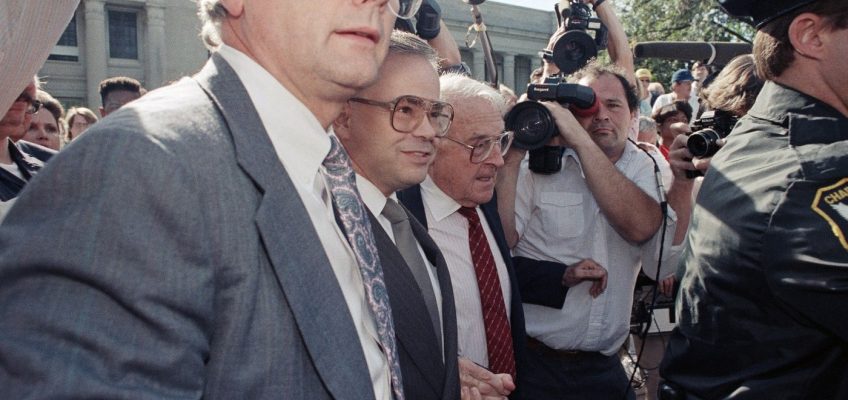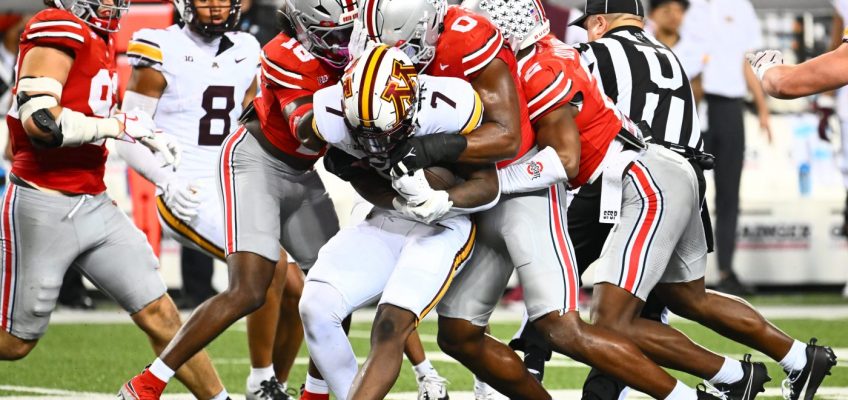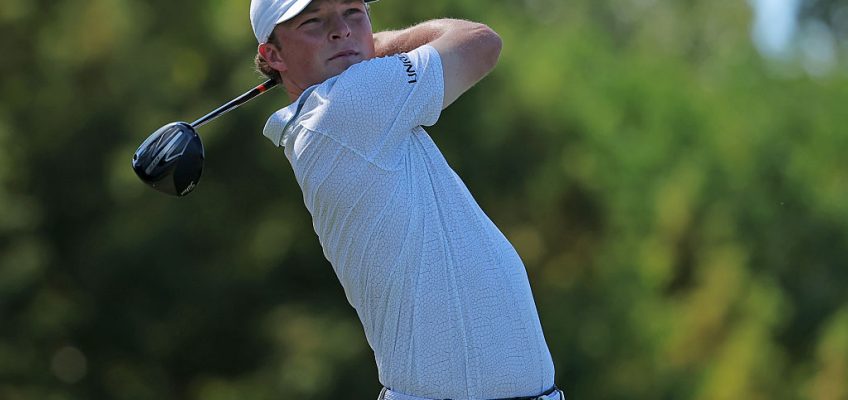Today is Sunday, Oct. 5, the 278th day of 2025. There are 87 days left in the year.
Today in history:
On Oct. 5, 1989, a jury in Charlotte, North Carolina, convicted evangelist Jim Bakker of using his television show to defraud followers. Initially sentenced to 45 years in prison, Bakker was freed in December 1994 after serving 4 1/2 years.
Also on this date:
In 1892, the Dalton Gang, notorious for its train robberies, was practically wiped out while attempting to rob a pair of banks in Coffeyville, Kansas.
Related Articles
Trump says he’ll send National Guard to Chicago, but details remain unclear
NFL analyst Mark Sanchez arrested while he was hospitalized with stab wounds
‘Klan Whisperer’: How one man helped 200 white supremacists change
Doing it my way: How programs help build confidence in the kitchen for those with disabilities
Today in History: October 4, American Taliban sentenced to 20 years
In 1947, President Harry S. Truman delivered the first televised White House address as he spoke on the world food crisis.
In 1953, Earl Warren was sworn in as the 14th chief justice of the United States, succeeding Fred M. Vinson.
In 1958, racially desegregated Clinton High School in Clinton, Tennessee, was nearly leveled by an early morning bombing.
In 1983, Solidarity founder Lech Walesa (lek vah-WEN’-sah) was awarded the Nobel Peace Prize. Starting in 1980, Walesa spearheaded Poland’s pro-democracy movement that nine years later led to the peaceful end of the country’s communist rule. In 1990-95 he served as democratic Poland’s first popularly elected president.
In 1986, Nicaraguan Sandinista government soldiers shot down a cargo plane carrying weapons and ammunition bound for Contra rebels; the event exposed a web of illegal arms shipments, leading to the Iran-Contra Scandal.
In 2001, tabloid photo editor Robert Stevens died from inhaled anthrax, the first of a series of anthrax cases in Florida, New York, New Jersey and Washington.
In 2011, Steve Jobs, the Apple founder and former chief executive who invented and master-marketed ever-sleeker gadgets that transformed everyday technology, died in Palo Alto, California, at age 56.
In 2018, a jury in Chicago convicted white police officer Jason Van Dyke of second-degree murder in the 2014 shooting of Black teenager Laquan McDonald.
In 2020, President Donald Trump made a dramatic return to the White House after leaving the military hospital where he was being treated for COVID-19.
Today’s Birthdays:
College Football Hall of Fame coach Barry Switzer is 88.
Rock musician Steve Miller is 82.
Rock singer Brian Johnson (AC/DC) is 78.
Actor Karen Allen is 74.
Singer-songwriter Bob Geldof is 74.
Astrophysicist-author Neil deGrasse Tyson is 67.
Architect-designer Maya Lin is 66.
Golf Hall of Famer Laura Davies is 62.
Hockey Hall of Famer Mario Lemieux is 60.
Hockey Hall of Famer Patrick Roy is 60.
Actor Guy Pearce is 58.
Actor Josie Bissett is 55.
Actor Parminder Nagra (pahr-MIHN’-da NAH’-grah) is 50.
Actor Kate Winslet is 50.
Actor Jesse Eisenberg is 42.
NFL tight end Travis Kelce is 36.
Actor Jacob Tremblay is 19.




